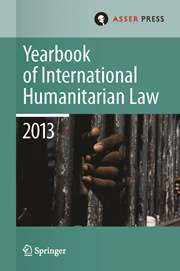No CrossRef data available.
Article contents
LEARNING THE LESSONS OF THE MILOŠEVIĆ TRIAL
Published online by Cambridge University Press: 18 November 2008
Extract
One noticeable coincidence in 2006 involved the deaths of three former heads of state: Saddam Hussein, Augusto Pinochet and Slobodan Milošević. Many past calendar years have marked the passing of multiple former heads of state but these three particular former leaders had all been subjected to judicial processes of one sort or another in respect of alleged widespread and systematic violations of human rights, arbitrary killings and – for two of them – genocide of their own or other peoples. In all three cases the deaths were linked in some way to the legal proceedings and evoked widespread dissatisfaction – Pinochet because he escaped trial, Hussein because the proceedings against him were fundamentally flawed and Milošević because he died before the four-year trial proceedings against him could be brought to a conclusion. Despite the obvious differences in judicial proceedings against all three accused, an emergent and common refrain has been to query whether any satisfactory trial of a former head of state is indeed possible.
- Type
- Articles
- Information
- Copyright
- Copyright © T.M.C. Asser Instituut and the Authors 2008


